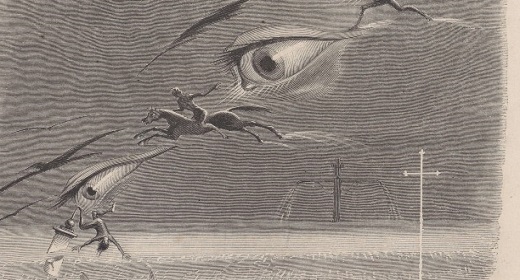by Alexander Chee: A misremembered quote, self forgiveness, and attending to the unmade decisions of a draft…
deal with writers’ block several times a year, usually in the form of other people’s writers’ block. Specifically, I find myself every year with a few students trying and failing to write their stories for class. Teaching creative writing inside of a liberal arts institution means putting creativity on a clock — the quarter or semester — and over the 25 years I’ve been teaching writing, I’ve learned my blocked students are usually high-achieving young people who are used to being able to power their way through a paper, get the answers, get the grade and move on. Fiction writing doesn’t really work that way.
That said, we know clocks can work. To wit: the number of people who say they thrive on a deadline.
One of the most valuable pieces of advice I ever received on the topic came to me wrongly attributed to Joyce Carol Oates. I even finally checked the quote with her and she kindly replied and said, “That doesn’t sound like me.” In any case, here is the quote, which I think is wise but does not come from her:
The writer stops writing when they believe the idea is fraudulent. When they believe the idea will trick them into making a mistake.
Which brings me to the inspiration for today’s post:
The idea of the fraudulent idea, the idea that you are tricking yourself into humiliating yourself, and that stopping yourself from writing is the only way to protect yourself, this is a potent source of writers’ block. You begin with the fear of humiliating yourself, which takes you to the fear of losing the love of someone you care about who might read it and who you fear will think less of you, or even punish you, even end the relationship. From there we move to the fear of failing to achieve, which is a shadow to the fear of success, which brings us back around to the fear of your own ideas.
Some of us do have genuine fears around our self-expression related to abusive relationships and identities that are persecuted, attacked, considered socially unacceptable. Sometimes our fears around writing about these subjects are genuine and so then we need to figure out how to make a world where we can write about these things safely. My career has been spent writing about identities that were only recently legalized, or were not legal when I began writing but were legal years later. I was born into a country that had criminalized sodomy, just after laws that would have prevented my parents from marrying were struck down.
That said, keep in mind that writing is work and that when the idea you are rejecting seems like an insurmountable object, you are engaging in a number of destructive fantasies: that you could get it right on one try; that you don’t need to work at something to accomplish it; that you are a failure already, without trying anything at all. When you stop writing in order to protect yourself from that, you are imagining that at least you won’t embarrass yourself. You imagine that stopping writing protects you, and you feel a little relief from the danger of whatever your idea is suggesting.
Soon, time passes. If no other writing has happened, you feel the humiliation of not having written, which only adds to the difficulty — you have a problem and you have created another problem out of the problem. This is often when addicts give themselves permission to act out. This would be a classic trigger to go drinking, have a destructive affair, take any risk you can think of besides the risk you should take, the risk that would be just sitting down to write and to go forward and continue writing.
This, as I have learned, is when it is time to forgive yourself and then to get back to writing. And yes, I learned this the hard way. It’s hard enough to have a problem without also being ashamed of the problem. Call a friend, take a walk, cry, whatever it is you need to do. A few more lessons come to mind.
1: If you reject an idea and cannot continue writing the story, you have rejected something essential to the story.
While writing my first novel, Edinburgh, the plot I conceived involved the murder of one of my characters. I second-guessed myself and decided it was too cliché to kill off this character, and then I was unable to go further, for months. After the third month of struggling and failing to find a way forward, I killed him off and the novel was completed later that year. The lesson I learned here was that writers’ block might be a sign not just that your rejection of the idea stops you, but that you actually need that idea in order to continue the work and complete it. This lesson comes back every time I meet with a student who tells me, “What will people think of me if I let my character do _______?” This leads me to the next lesson.
2: A fear of being in bad taste will trap you.
After years of struggling with the structure of The Queen of the Night, I finally used a structural idea I had early on in the writing process that I rejected as too melodramatic. Too over the top. But it turned out to work with the thematic structure of the novel, creating a unity of idea and structure that I needed. The lesson learned here was similar to the first lesson above but included something else — that my fear of embarrassing myself for being in bad taste had caused me to edit the novel in a way that had nothing to do with the novel’s ideas. I had let my ego edit the story and not the story itself. In retrospect, the fear I had seems even ridiculous — of course a novel about opera would be over the top. How could it not be?
3: Your draft’s current structure may be keeping you from finishing.
A commitment to a structure that doesn’t allow the novel, story, poem, essay to find a final successful form will insist on the form and not what the form contains, and the material will resist.
4: Point of View is structural, and so if you have the wrong structure, you may have chosen a point of view that doesn’t allow for a successful structure.
5: The unmade decisions of your draft will operate as blocks, especially if they are connected to your own ambivalences, in which case the block will hide as indecision.
The worst blocks of this kind will hide as minor annoyances, and those are the hardest to face precisely because they seem inconsequential but are not, not at all. Stories, novels, essays, these are all a collection of interrelated decisions, and each decision you make helps you make another decision. When you stop being able to make decisions about the forward motion of the writing, reread the draft with an eye for what you may have put off deciding on. Or sit down and make a list of the unmade decisions of the draft. One clue: any scenes you have in your mind that are not in your draft are connected to those unmade decisions, and are waiting, most likely, for you to make room for them.
This novel will destroy you, I used to think, during the worst periods of being blocked on The Queen of the Night. And easily one of the biggest struggles of writing that novel was allowing myself to be the person who would write it. This was something I didn’t realize for years. My ambivalence about the novel was an ambivalence about my identity as a writer. The original idea for the novel seemed so far away from my idea of myself, even though I was the one who thought of it. But needing that coherence was a demand of the ego, and not the artist. I needed a bigger idea of myself that included the writing of that novel.
If you want me to elaborate on any of these lessons further, let me know, it may be a future blog post. And if you have solutions for writers’ block, please leave them in the comments. Your comment may save someone else years of trouble.




















































